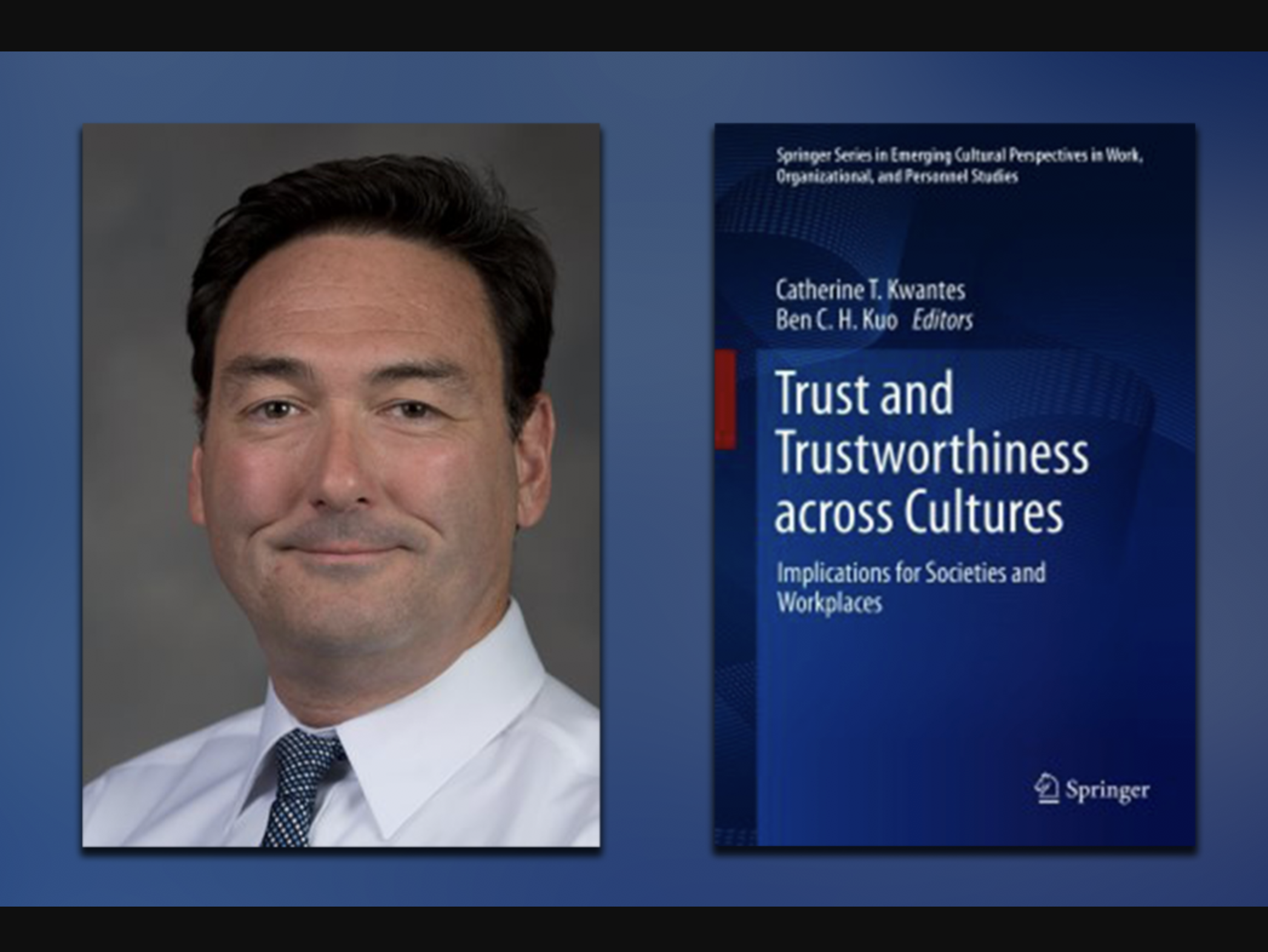Chris Leupold, professor of psychology and Isabella Cannon Leadership Professor, has published a chapter on trust in United States governments and organizations for a book titled “Trust and Trustworthiness across Cultures.”
With trust in governments, institutions and organizations around the world reaching all-time lows, Professor of Psychology Chris Leupold set out to make sense of the phenomenon and how it might relate to trust in the workplace.

Leupold, Isabella Cannon Leadership Professor and Faculty Fellow for Law and Leadership, has published a chapter in a recently published book, “Trust and Trustworthiness across Cultures: Implications for Societies and Workplaces.” The chapter, titled “Examining and Understanding the Current State of Trust in the United States,” focuses on how to understand trust within the nation’s cultural context.
“Trust and Trustworthiness across Cultures” address the idea of trust through the lenses of seven cultural perspectives from around the world. Leupold’s chapter delves into a decline in trust in the U.S. for government, media and other institutions. Leupold argues that a lack of trust in the U.S. can be attributed to a society that has become less homogenous and a political system that has become more polarized over the years.
“My hope is that people, and leaders particularly, will see this and realize there are levers that they can pull that help develop trust.”
— Professor Chris Leupold
Leupold uses the discussion about U.S. trust to turn the reader’s attention to a discussion of the role trust plays in the workplace. Leupold is an industrial-organizational psychologist who studies how organizations operate in terms of training, hiring and culture. In his book chapter, Leupold highlights the importance of trust within an organization – both between employees and supervisors and employees and overall organizations. As Leupold explains, trust is essential to the success of any workplace.
“It’s where most people spend a good portion of their lives, and people are always more productive and satisfied and committed to their organizations if there is trust,” he said.
Leupold explains that trustworthiness within an organization is defined by a trustor’s (the employee’s) assessment of the trustee (the employer) based on the ABI Model. The model shows an employee can only trust a supervisor or employer if the employee believes the supervisor displays ability, benevolence and integrity.
 In the ABI Model, ability refers to an employee’s confidence that their employer is knowledgeable; benevolence relates to an employee’s ability to trust that an employer has their best interest in mind; and integrity refers to the employee’s belief that their employer is inherently good and would only ask them to carry out tasks that are within moral boundaries. Leupold says each aspect of the model is critical for employees, who spend large portions of their time in the workplace. Without the presence of these components of organizational trust, employees will be much less likely to follow directions and do their part, Leupold says.
In the ABI Model, ability refers to an employee’s confidence that their employer is knowledgeable; benevolence relates to an employee’s ability to trust that an employer has their best interest in mind; and integrity refers to the employee’s belief that their employer is inherently good and would only ask them to carry out tasks that are within moral boundaries. Leupold says each aspect of the model is critical for employees, who spend large portions of their time in the workplace. Without the presence of these components of organizational trust, employees will be much less likely to follow directions and do their part, Leupold says.
“Research shows that people who do trust in their leaders and their organizations are more productive, happier and committed, and they do extra work they aren’t asked to do,” he said. “It just creates a more productive organization.”
While Leupold doesn’t believe trust in organizations has declined at the same rate of trust in other U.S. institutions, he says there are still important steps organizations need to take to maintain the trust of their employees. In the book chapter, Leupold offers a number of recommendations to help organizations build trust like involving employees in the decision-making process and being transparent.
“My hope is that people, and leaders particularly, will see this and realize there are levers that they can pull that help develop trust,” he said. “And if they do that, trust will increase and they’ll create a better work environment.”
“Trust and Trustworthiness across Cultures” was edited by Catherine T. Kwantes and Ben C. H. Kuo and is part of the Springer Series in Emerging Cultural Perspectives in Work, Organizational, and Personnel Studies book series.



